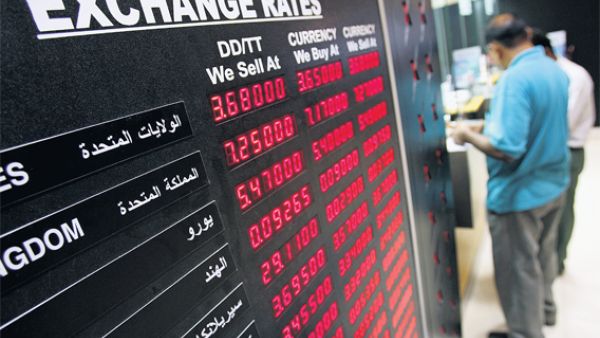Expatriate remittances to Lebanon will continue to fall slightly in 2016, according to economist Ghazi Wazneh.
“Remittances to Lebanon will see a slight drop in 2016 because oil prices are expected to remain low, which will negatively impact the income of Lebanese working in the Gulf, thus curbing their money transfers to the country,” he told The Daily Star.
Wazneh explained that around 65 percent of remittances to Lebanon come from oil-producing countries and this is why low oil prices will continue to have an impact on remittances.
Also, Wazneh said oil prices will remain low because Iran refused to freeze its oil production at January levels while Saudi Arabia vowed not to freeze its output if other countries do not do the same. “If oil production remains the same, oil prices will not rebound and remittances to Lebanon will continue to see a slight drop,” he said.
Meanwhile, the World Bank revised downward expatriates’ remittances to Lebanon in 2015 to $7.16 billion from a previous estimate of $7.5 billion.
“As a result, remittance inflows to Lebanon decreased by 3.3 percent in 2015, following a drop of 8.4 percent in 2014 and an increase of 21.2 percent in 2013,” according to Lebanon This Week, a publication of Byblos Bank, citing the World Bank.
Wazneh said that last year’s estimated drop in remittances was expected because revenues of Lebanese working in the Gulf fell by around 40 percent in 2015 compared to the year before.
Lebanon This Week reported that Lebanon was the second largest recipient of remittances among 16 Arab countries and the third largest among 49 upper middle-income countries in 2015. “Globally, Lebanon received more remittances than Russia ($7.1 billion), the United States ($7.09 billion) and Sri Lanka ($7 billion), and less than Indonesia ($9.63 billion), Italy ($9.58 billion) and Belgium ($8.84 billion). It was a larger recipient of remittances than Sri Lanka, Nepal ($6.98 billion) and Guatemala ($6.61 billion), and a smaller recipient than Bangladesh ($15.36 billion), Vietnam ($13.2 billion) and Indonesia among developing economies,” it said. “Also, remittance inflows to Lebanon were lower than inflows to Egypt ($19.71 billion) among Arab countries,” it added.
The report said that remittance inflows to Lebanon accounted for 1.2 percent of the global flow in 2015, compared to 1.3 percent in 2014 and 1.4 percent in 2013.
“They accounted for 14.2 percent of remittance inflows to Arab countries in 2015 relative to 14.6 percent in 2014 and 16.5 percent in 2013,” it said.








